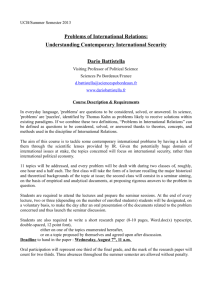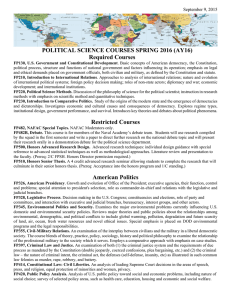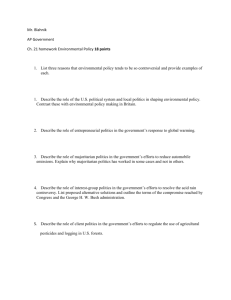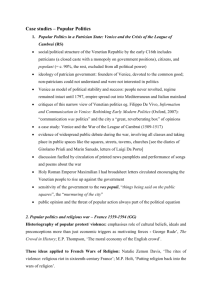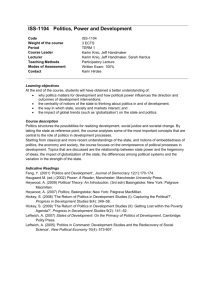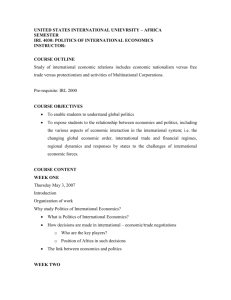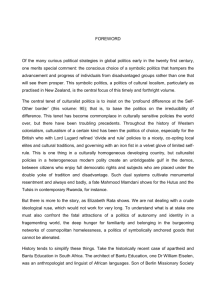ESR-2101P
advertisement
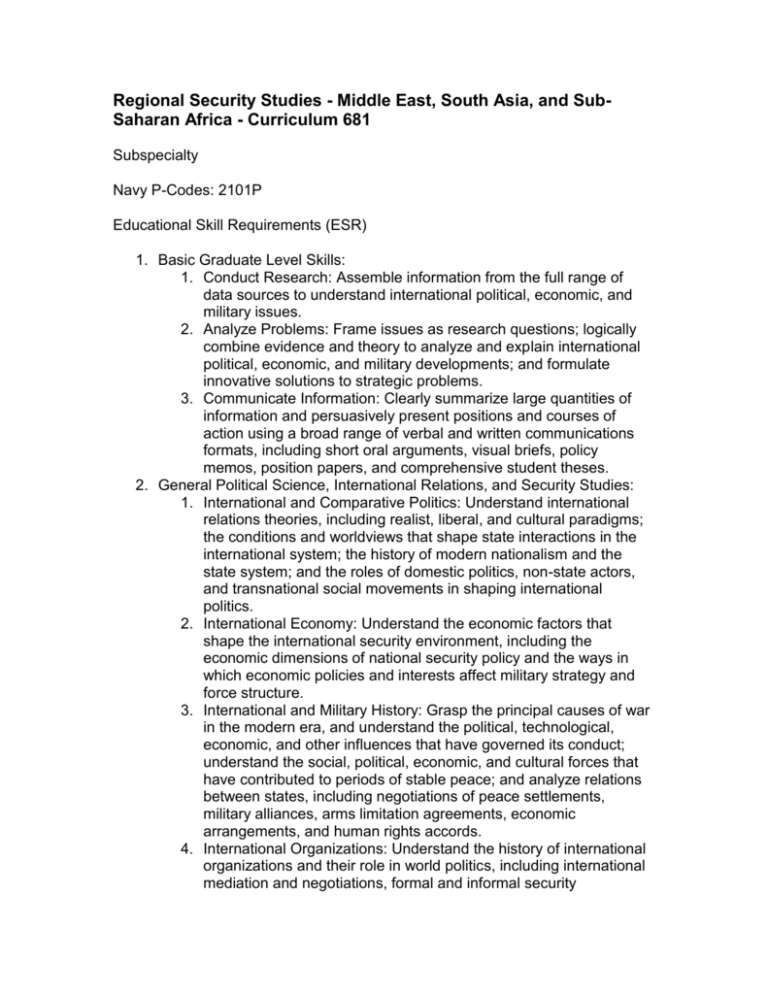
Regional Security Studies - Middle East, South Asia, and SubSaharan Africa - Curriculum 681 Subspecialty Navy P-Codes: 2101P Educational Skill Requirements (ESR) 1. Basic Graduate Level Skills: 1. Conduct Research: Assemble information from the full range of data sources to understand international political, economic, and military issues. 2. Analyze Problems: Frame issues as research questions; logically combine evidence and theory to analyze and explain international political, economic, and military developments; and formulate innovative solutions to strategic problems. 3. Communicate Information: Clearly summarize large quantities of information and persuasively present positions and courses of action using a broad range of verbal and written communications formats, including short oral arguments, visual briefs, policy memos, position papers, and comprehensive student theses. 2. General Political Science, International Relations, and Security Studies: 1. International and Comparative Politics: Understand international relations theories, including realist, liberal, and cultural paradigms; the conditions and worldviews that shape state interactions in the international system; the history of modern nationalism and the state system; and the roles of domestic politics, non-state actors, and transnational social movements in shaping international politics. 2. International Economy: Understand the economic factors that shape the international security environment, including the economic dimensions of national security policy and the ways in which economic policies and interests affect military strategy and force structure. 3. International and Military History: Grasp the principal causes of war in the modern era, and understand the political, technological, economic, and other influences that have governed its conduct; understand the social, political, economic, and cultural forces that have contributed to periods of stable peace; and analyze relations between states, including negotiations of peace settlements, military alliances, arms limitation agreements, economic arrangements, and human rights accords. 4. International Organizations: Understand the history of international organizations and their role in world politics, including international mediation and negotiations, formal and informal security arrangements, treaty regimes, and the role of international institutions and non-governmental organizations in peacekeeping and humanitarian operations. 5. U.S. Security Policy and Strategy: Understand how U.S. national security policy and strategy are formulated. Understand the roles of nuclear forces in the security policies of the United States and other nuclear powers; U.S. nuclear force acquisition, planning, deterrence policy, and employment concepts from the Second World War to the present; and the role of nuclear weapons in alliance politics and international relations. 3. Regional Security Studies: 1. Identities, Interests, and Politics: Grasp the most significant political, economic, historical, cultural, and religious drivers that shape national identities and interests within their region of concentration. 2. Emerging Security Challenges: Know the regional sources of political and social instability and become familiar with the roots of ethnic conflict, insurgencies, and terrorism, and their effect on regional and U.S. security. 3. Regional Conflicts: Understand the patterns of violent conflicts, the likely sources and character of regional wars in the present and future, and the historical and prospective impact of such wars on the international system. 4. Military Forces and Strategic Posture: Understand the main factors determining the strategic postures of countries in the region, including strategic culture and goals, threat perceptions, and military force structures. 5. U.S. Regional Security Policy: Understand U.S. foreign policy objectives in a given region and be able to explain U.S. political, economic, and military strategy in the region, including U.S. engagement policy and security assistance programs. 6. Economic Factors: Grasp the importance of underlying economic conditions on regional stability and conflict, as well as the tools of economic statecraft that the United States and international organizations may employ to try to influence these conditions.





